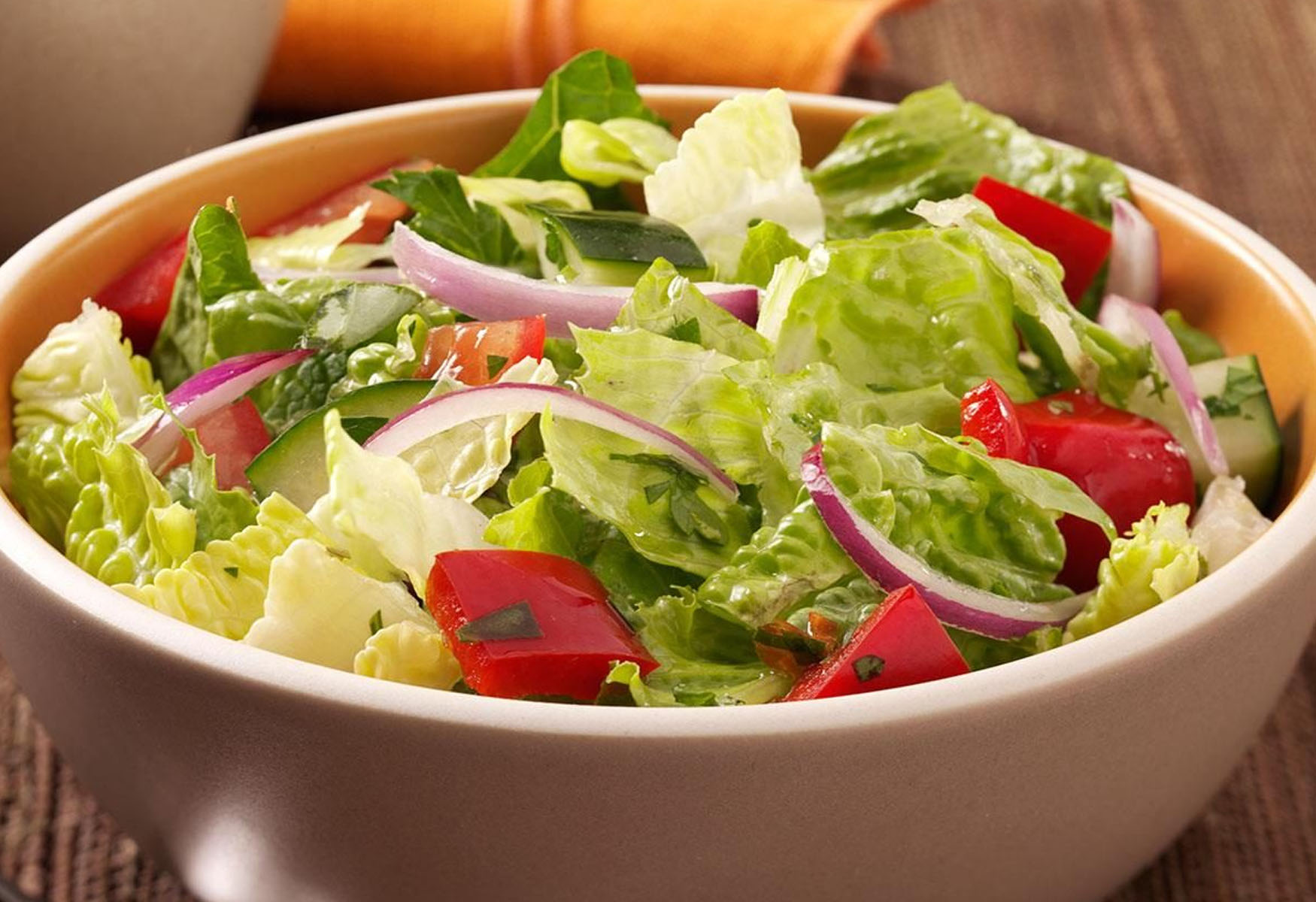
Garden salads are a popular choice for people looking to incorporate more vegetables into their diet. Not only are they delicious and refreshing, but they also offer a plethora of health benefits. Garden salads are typically made with a variety of fresh vegetables, such as lettuce, tomatoes, cucumbers, bell peppers, and carrots, and they can be customized with your choice of toppings and dressings. In this article, we will explore 11 nutrition facts about garden salads that make them a fantastic addition to any meal plan. So, whether you’re a health-conscious individual or simply looking for a tasty and nutritious option, read on to discover the amazing benefits that garden salads have to offer!
Key Takeaways:
- Garden salads are a low-calorie, hydrating, and customizable option packed with essential vitamins and minerals, making them a great choice for weight management and overall health.
- Adding protein-rich toppings to your garden salad can make it a satisfying and balanced meal, while the antioxidants in the colorful vegetables can help protect your body from damage.
Garden salad is a low-calorie option.
A serving of garden salad typically contains around 50-100 calories, making it a great choice for those who are watching their calorie intake.
Garden salad is packed with vitamins and minerals.
Garden salads are often made with a variety of fresh vegetables, such as lettuce, tomatoes, cucumbers, and carrots. These vegetables are rich in vitamins A, C, and K, as well as minerals like potassium and manganese.
Garden salad is a good source of dietary fiber.
The vegetables in a garden salad are high in fiber, which can help promote healthy digestion and prevent constipation.
Garden salad is low in fat and cholesterol.
Garden salads are typically dressed with vinaigrettes or low-fat dressings, which helps to keep the fat and cholesterol content low.
Garden salad is a hydrating option.
Vegetables in a garden salad have high water content, which helps to keep you hydrated and contributes to overall good health.
Garden salad can be a good source of protein.
Adding grilled chicken, hard-boiled eggs, or tofu to your garden salad can provide a boost of protein, making it a more satisfying and balanced meal.
Garden salad is a versatile dish.
You can customize your garden salad by adding different toppings like avocado, nuts, seeds, or grilled vegetables to suit your taste preferences and nutritional needs.
Garden salad can provide antioxidants.
The colorful vegetables in a garden salad contain antioxidants, which help protect the body against damage from harmful free radicals.
Garden salad can help with weight management.
The high fiber and low-calorie content of garden salads can help you feel full without consuming excessive calories, thus supporting weight loss or weight maintenance goals.
Garden salad can improve overall health.
Eating a garden salad regularly as part of a balanced diet can contribute to a healthier lifestyle by providing essential nutrients and promoting a well-functioning digestive system.
Garden salad promotes healthy skin.
The vitamins and minerals found in a garden salad, such as vitamin A and C, play an important role in maintaining healthy skin, promoting collagen production, and protecting against skin damage.
Conclusion
Garden salads are not only delicious but also highly nutritious. Packed with an array of fresh vegetables and leafy greens, they offer numerous health benefits. From vitamins and minerals to fiber and antioxidants, garden salads provide a powerhouse of nutrients that can support overall well-being and contribute to a healthy diet. Incorporating garden salads into your regular meals is an excellent way to boost your vegetable intake and add variety to your diet. So next time you’re looking for a refreshing and nutritious meal, consider indulging in a garden salad.
FAQs
Q: Are garden salads low in calories?
A: Garden salads can be low in calories, especially if you skip high-calorie dressings and add-ons like croutons or cheese. The calorie content depends on the ingredients you use and the portion size.
Q: Can garden salads help with weight loss?
A: Yes, garden salads can be a great addition to a weight loss diet. They are low in calories, high in fiber, and provide a sense of fullness. Including a well-balanced garden salad in your meals can help you manage your weight effectively.
Q: What are some common ingredients in a garden salad?
A: Common ingredients in a garden salad include lettuce, tomatoes, cucumbers, bell peppers, carrots, and onions. You can also add other vegetables like radishes, celery, or avocados, depending on your preference.
Q: How can I make my garden salad more flavorful?
A: To enhance the flavor of your garden salad, you can experiment with various dressings, such as vinaigrettes, creamy dressings, or even homemade options. Adding herbs, spices, or toppings like nuts, seeds, or dried fruits can also elevate the taste.
Q: Can I customize a garden salad to my dietary restrictions?
A: Absolutely! Garden salads are highly versatile and can be customized to accommodate various dietary restrictions. You can make them gluten-free, dairy-free, vegan, or vegetarian by choosing suitable ingredients and dressings.
Was this page helpful?
Our commitment to delivering trustworthy and engaging content is at the heart of what we do. Each fact on our site is contributed by real users like you, bringing a wealth of diverse insights and information. To ensure the highest standards of accuracy and reliability, our dedicated editors meticulously review each submission. This process guarantees that the facts we share are not only fascinating but also credible. Trust in our commitment to quality and authenticity as you explore and learn with us.
